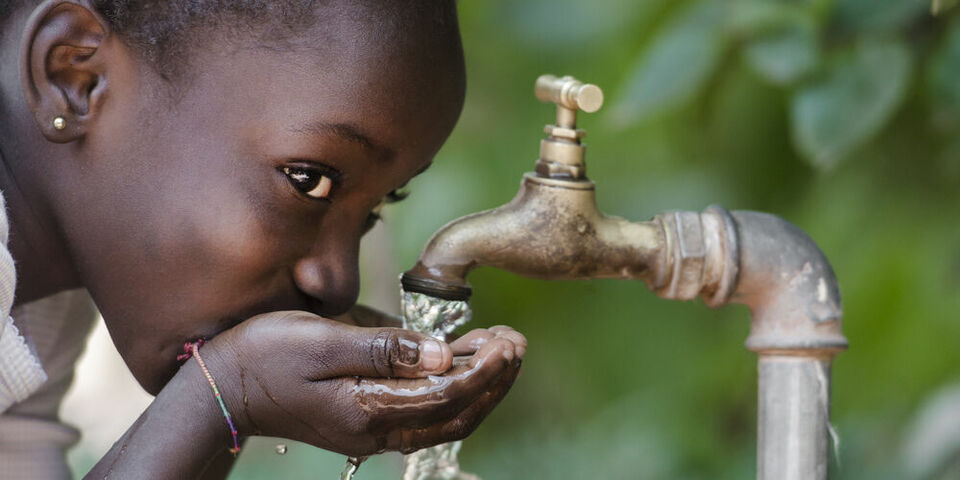Cursor goes course-hopping | Giving money
Because here at TU/e we are never too old to learn, we'll take any good workshop that comes our way. On this occasion Cursor has joined a 'Giving Game', organized by Effective Altruism Eindhoven in cooperation with an ambassador for the Giving What We Can foundation. Key question: How should we decide which good causes are the best ones?
Spending two evenings in September collecting money in my neighborhood is of more benefit to KWF Dutch Cancer Society than my donating ten euros. For years I believed this.
On the evening that I was honored for twelve-and-a-half years of loyal service I stopped believing this. I was appalled that KWF was spending its money giving me a slice of cake, a couple of glasses of beer and a savory snack, and a bunch of flowers. And a pin! Instead of spending that much-needed money on research. In my mind's eye I saw a black hole of unnecessary costs.
So, this workshop comes at just the right time. I'm keen to learn which would be the best charity to support. Which one has the smallest black hole. And, even better, the workshop is presented as a game. How promising.
The game element is a little disappointing but not the organizers' good intentions. Sebastian de Groot of Giving What We Can doesn't mince his words: “I want to make the world a better place.” Besides being a furniture maker, he is an optimist, and he wants us, the seven participants in the workshop, to learn how to make a conscious choice between three good causes that have been picked for us. On behalf of each of us, his organization will donate 20 euros to the charity we choose, democratically, this evening.
Cute dog
“You usually have very little time to make your choice. You're in the supermarket, or at an airport, or on the street and you're asked straight out: do you want to give, yes or no? You weren't expecting this and sometimes there's even a cute dog tugging at your heartstrings. Today we are going to learn how to handle this differently,” says De Groot. Using slides, he introduces three charities: 1) Give Directly, 2) Play Pumps and 3) Against Malaria Foundation.
I go with my initial gut feeling and choose number 2. Africa will get water pumps. I saw a photo of happy children playing on a horizontal water wheel. It was being turned by their satisfied parents while they waited for their jerrycans to fill with groundwater.
Gotcha!
Wrong! That organization does exist but it supplies poor-quality pumps and in actuality few people were happy with the play pumps. They weren't sufficiently cost-effective, the overhead costs were too high and the water sources too deep. That a lot of people gave money despite all this was due to the hopeful faces of little children. The marketing, it seems, was spot on.
Now we are going to use the internet to find out more about the other two charities. De Groot tells us that we need to find out whether enough people are helped at the same time, whether the problem is one that can really be solved (“which can't be said of mortality”), and whether the organization is transparent. He has a tip for us: there are foundations that do this ground work, like Give Well and, for animal lovers, Animal Charity Evaluators.
Transparency
Give Directly donates fairly large sums, say a thousand dollars, to individuals in a community selected by the organization. “To everyone in a village where the roofs are in a poor state of repair, for example,” as a fellow workshop participant knows from working for Effective Altruism Eindhoven this year. Evidence suggests that after receiving the gift, residents spend more money on food, medicines and social events. One person might have used the money to buy a cow. Everyone gets to choose for themselves; the money comes without any strings attached.
As for Against Malaria Foundation (AMF), it is clear what a mosquito net costs and how many children's lives are saved every year in each of the areas where AMF is active. The transparency is good, likewise the usefulness and cost-effectiveness, says Give Well.
Heart
But in voting I'm guided more by my heart than by a vote compass or a website full of Excel spreadsheets. I choose Give Directly because I like the idea that the recipients can make their own choices about what's best for them. If they want, they can even buy malaria nets. If unconditional love is good, an unconditional gift must be too, I think.
It is exciting to find out which charity will get our 140 euros. I'll say it again: this money was already in the pot, it is Giving What We Can's own money, but this evening we get to decide who will receive it. The score: three votes for AMF, four for Give Directly. De Groot is going to send an email that we've democratically chosen Give Directly. I trust his greenish brown eyes.
In the ‘Cursor goes course-hopping’ feature, our editors will take part in the various training sessions, courses and workshops that TU/e offers throughout the year with the aim of allowing students and staff members to increase their knowledge and skills in a variety of fields. If you happen to offer a course, training session or workshop yourself that might be of interest to this feature, or if you know of any such event, don’t hesitate to contact Cursor’s editorial board.



Discussion